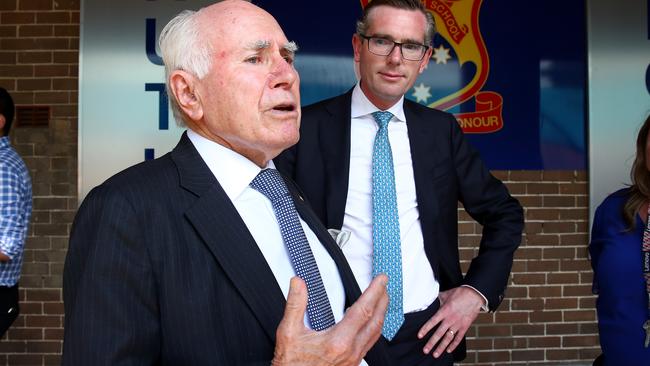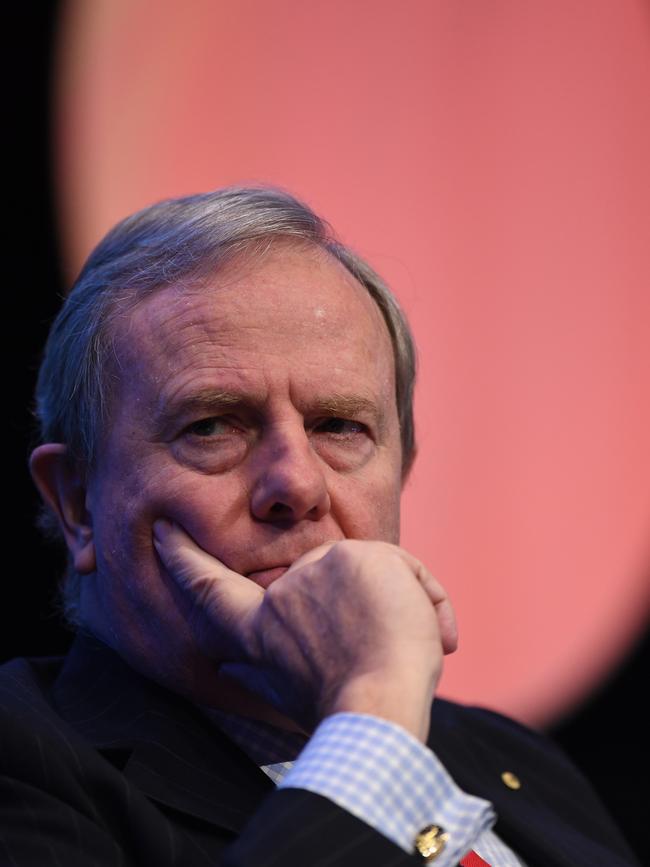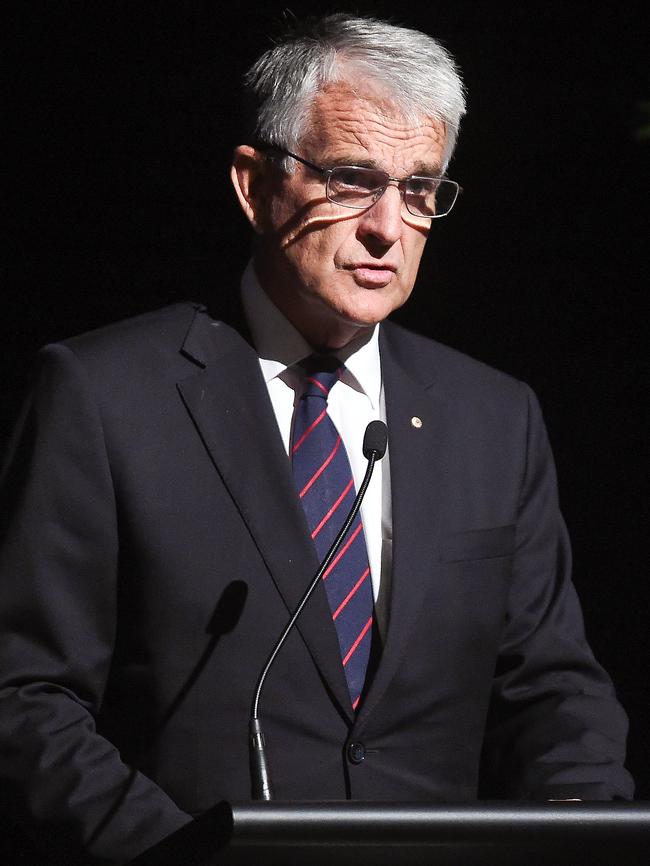Cabinet papers: Debt necessary but a burden on future generations, say Howard, Anderson and Costello
John Howard, John Anderson and Peter Costello urge the Morrison government to aim for future budget surpluses.

John Howard, John Anderson and Peter Costello have encouraged the Morrison government to anchor fiscal policy towards future budget surpluses, concerned about the massive financial burden on future generations, warning that if interest rates rise, then debt will have to be paid down faster.
“It is going to be quite a challenge (because) as time goes by and memories of the pandemic fade, the debt will still be there,” former prime minister Mr Howard said. “I supported what the government did. There will be burden, of course, but what was the alternative? The alternative would have been to have done far less, done very little.
“The most effective way of bringing (debt) down is to get our economy growing. So much of the debt has come about because of the expansion of transfer payments. You are now dealing in eye-glazing numbers such as deficits of $200bn but we are fortunate that interest rates are the lowest they have been in any person’s lifetime.”
With a $197.7bn budget deficit this financial year, and $456bn over four years, and gross debt to exceed $1 trillion by 2030, Mr Costello warned that Australians will have to endure “fiscal pain” to balance the budget and retire debt in future years. He said Australians would have to bear the cost of government debt over their lifetimes.

“If interest rates go up, we will have to try to pay down debt fast,” the former treasurer said. “There’s not so much of a problem now because interest rates are low, but the crunch will come if interest rates go up. I can’t tell you whether they will go up in a year’s time or two years’ time, but they are not going to remain this low forever.”
Mr Anderson, a former deputy prime minister and National Party leader, said he was “deeply” concerned about the debt and deficit in Australia, and around the world, which would have to be tackled by future generations.
“The explosion of debt in Australia takes us into dangerous territory,” he said. “We have been magnificently led through this crisis but if we are wise and we care about our kids, we will have to have an honest debate and wear some pain to address that headache in coming years. We need to find the intestinal fortitude and national unity to recognise that we cannot simply print money.”
Messrs Howard, Anderson and Costello — who presided over a government that delivered 10 budget surpluses and paid off $96bn in government debt — were interviewed by The Australian to coincide with the release of the 2000 cabinet papers by the National Archives of Australia.
The papers document once-secret cabinet debates about issues that have contemporary relevance: how to respond to climate change and Australia’s future energy mix; growing refugee arrivals by boat and how to manage mandatory detention; the terror threat at the time of the Sydney Olympic Games; the balance between symbolic and practical reconciliation with Indigenous Australians; investing in health, education and infrastructure; and defence preparedness and relationships in our region.

The implementation of the goods and services tax on July 1, 2000, dominates cabinet papers as ministers grappled with administrative changes to the taxation system and concerns over price rises. Two million businesses had to register for an Australian business number. The quarterly Business Activity Statement was introduced. More than three billion individual prices had to change overnight.
Reflecting on the GST, Mr Howard said there was still too heavy a reliance on personal income and company tax as sources of government revenue. “We still have a problem in this country that we rely too heavily on personal income tax and that was the principal argument for introducing the GST and getting rid of some of those cumbersome taxes like the wholesale sales tax and some state taxes,” he said. “But it’s a better system than we (had).”
Mr Costello said there was still a need to reform areas of federal-state responsibility and insist on greater accountability for spending. “I’d like to see state governments take more responsibility for raising revenue and more responsibility for spending it.
“The GST was the biggest reform in commonwealth-state relations in the last 20 years, but I’m afraid … the old blame Canberra game is very much alive and well.
“When people say we should change it, my answer is: tell me what you are going to do with the money? GST is a good way of raising money … and if you use that money for cutting worse taxes, I would be interested. But if you want to use that money for more spending, you won’t improve the tax system.”
More Coverage







To join the conversation, please log in. Don't have an account? Register
Join the conversation, you are commenting as Logout